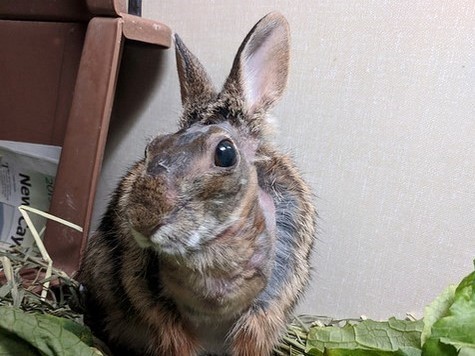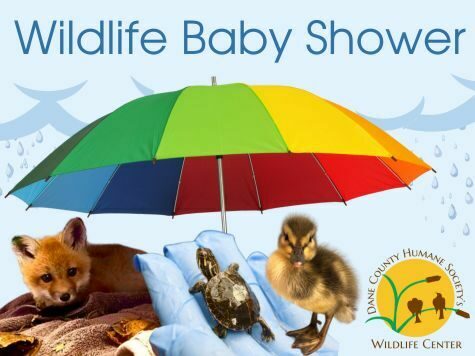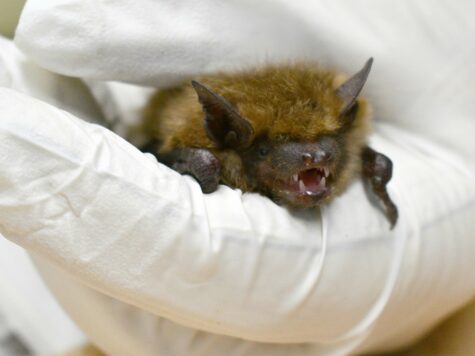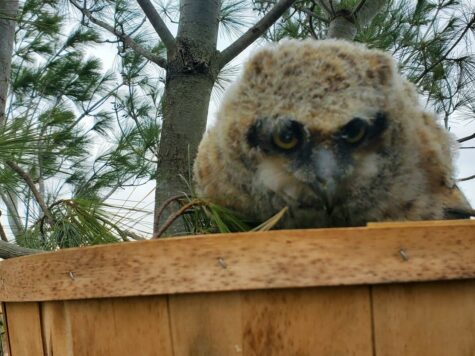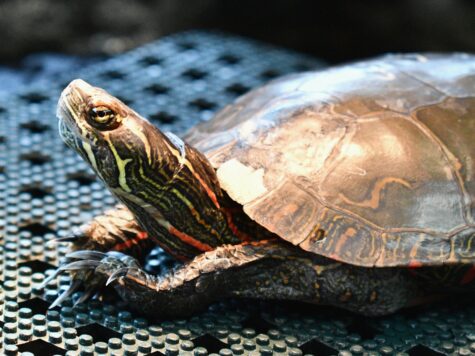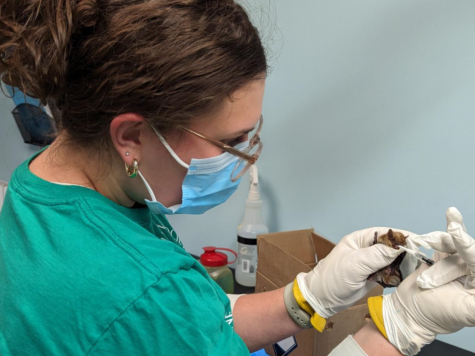In mid-October, an Animal Services officer brought this female adult eastern cottontail rabbit to Dane County Humane Society's Wildlife Center. She was thin with crust on her face and front legs. Our experienced Wildlife Center staff took a skin scraping and examined it under a microscope to determine she was suffering from sarcoptic mange, more commonly seen in larger mammals like foxes and coyotes. These parasitic mites burrow just beneath the surface of the skin, causing severe itching and hair loss. Often these animals will suffer secondary complications such as skin infections.
Over 650 sick, injured or orphaned wild rabbits have come to our Wildlife Center so far in 2018, but mange is rare to see in this species – she was our first balding bunny.
Fortunately, mange is a treatable condition, and this bunny is looking better already after several weeks in our care. We treat mange with multiple doses of a topical anti-parasitic, along with other treatments and medications as needed to address their secondary complications. We typically have mange patients in our care for several months. During their stay, rabbits eat large amounts of timothy hay and fresh greens, amounting to at least two times their body size every day!
Once we began treatment, the crust on her face and front legs fell off and left bald patches of skin. During her recheck exam, we were looking for hair growth in each of these areas and an increase in weight. She had short hair growing in but it was not long enough to keep her head warm in winter temperatures. We also did a skin scrape to see if there are any mites remaining after her treatment, or if she was mange-free.
Sarah Karls, a DCHS Licensed Wildlife Rehabilitator, completed this rabbit’s recheck exam and was able to examine her skin scrape under a microscope. The skin scrape was negative – no more mites! Once her coat finishes coming in this rabbit will be able to return to the wild!
We hope you enjoyed this sneak peek into DCHS's Wildlife Center, and we want to thank you for your support of Dane County Humane Society! Your generosity supports the care of animals like this rabbit. Please consider making a gift today to help us continue this lifesaving work for Wisconsin wildlife and meet our largest matching gift challenge ever of $30,000!
Thank you for your patience! Due to all the wonderful generosity this Giving Tuesday, our donation form below may take a minute or two to load.
